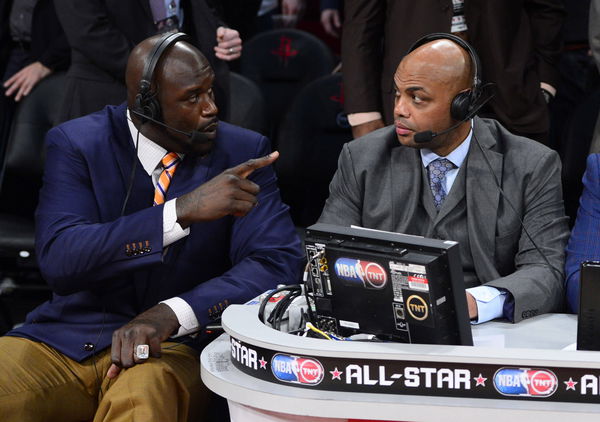$200M Aaron Rodgers Took Home Only $49,600,000 Last Year Due to Michael Jordan Tax Deductions

Follow Us

via Imago
Image Credits: Imago
Rodgers’ last season might not have seen consistent success in terms of both playoffs and income. While on one hand, A-Rod and the Packers found themselves in a remarkable position, fighting for the last playoff spot in the NFC, after losing seven of their previous eight games. On the other hand, despite his 18-season tenure with the Packers, the 39-year-old quarterback had to contend with income tax implications.
While Aaron Rodgers has now established his residence in the Big Apple and is playing for the Jets as their new quarterback, the newly minted Jets QB experienced the change of scenery he had been seeking. He agreed to a revised contract amounting to $112.5 million over three years. However, probably the alteration in his income over the past year wasn’t quite as welcome.
Aaron Rodgers’ income challenges across state lines
ADVERTISEMENT
Article continues below this ad
As per insights from Andrew Petcash, an expert in athletic finances, shared on Twitter, it’s evident that in 2022, Rodgers encountered the jock tax. During his final season with the Packers, Rodgers garnered approximately $50 million through his contract. Nonetheless, out of this sum, Rodgers had to relinquish over $400K due to the “jock tax,” a well-known income tax applied to athletes, leaving him with $49,600,000.
Aaron Rodgers paid over $400k in jock tax last year…
And it was because of Michael Jordan.
Here’s the fascinating breakdown: 👇 pic.twitter.com/2VVTnXzFfB
— Andrew Petcash (@AndrewPetcash) January 8, 2023
This particular tax is imposed by various states on non-residents who earn within their boundaries. Petcash’s tweet illustrates the concept: “For example, when Aaron Rodgers plays in California he pays their rates and not Wisconsin’s.” It particularly impacts high-earners like NFL MVP Aaron Rodgers. His recent $9.5 million mansion purchase in New Jersey could lead to jock tax changes for him next season.
Trending

Shaquille O’Neal and Charles Barkley’s Absence From “Inside the NBA” Is Due to TNT’s Uncertain Future, as Per Reports
May 15, 2024 07:32 AM EDT

Countdown Starts for Charles Barkley and TNT Crew as Ernie Johnson Makes Heartfelt Confession Before Parting
May 16, 2024 06:00 AM EDT

Exclusive: Real Motive Behind Shaquille O’Neal’s Attack on Nikola Jokic Revealed by Insider
May 15, 2024 12:54 PM EDT

“Biggest Fumble”: Kelsey Plum Flaunting Body in Kim Kardashian’s Skims Has Fans Questioning Ex-Hubby Darren Waller’s Divorce Decision
May 13, 2024 07:07 PM EDT

Mother of 5, Dwyane Wade’s Wife Gabrielle Admits Changing Herself Due to 3 Things
May 13, 2024 12:30 PM EDT
Get instantly notified of the hottest NBA stories via Google! Click on Follow Us and Tap the Blue Star.

Follow Us
However, it’s important to note that the jock tax isn’t a novel concept; many players have been subject to it for decades. Its prominence surged in 1991, largely due to the involvement of NBA legend Michael Jordan.
How the NBA legend sparked a tax revolution?
ADVERTISEMENT
Article continues below this ad
The inception of the jock tax traces back to a pivotal basketball showdown between Michael Jordan’s Chicago Bulls and the LA Lakers in California. Following the Bulls’ victory, the team indulged in a few extra days of celebration. However, the revelry was short-lived for MJ’s accountant, who received news that California demanded taxes from the superstar.

via Imago
A tearful Michael Jordan brought a moment of levity to the somber memorial for Kobe Bryant on when he joked about the Crying Jordan meme to family, friends and fans attending the Celebration of Life for Kobe and Gianna Bryant memorial ceremony at Staples Center in Los Angeles on Monday, February 24, 2020. Kobe Bryant and Gianna Bryant were killed along with seven other people in a helicopter crash in Calabasas on January 26. PUBLICATIONxINxGERxSUIxAUTxHUNxONLY LAP20200224404 JIMxRUYMEN
In a twist of fate, the State of Illinois swiftly responded with a similar policy, targeting Californian players who competed in Chicago. This initial spark soon ignited a nationwide trend, with each state crafting its version of the “Jock Tax.” Yet, its reach isn’t confined to athletes alone. Trainers, doctors, coaches, and a spectrum of professionals earning across multiple states are also subject to its grasp.
ADVERTISEMENT
Article continues below this ad
The scope is expansive, encompassing all members of a team. The financial windfall generated by the jock tax is staggering. Illustratively, California stands out, raking in a remarkable $250 million annually from these taxes alone.
Watch this story: Super Bowl winner Aaron Rodgers makes an unprecedented move with his $35 million sacrifice
Edited by:
Mallika Singh

